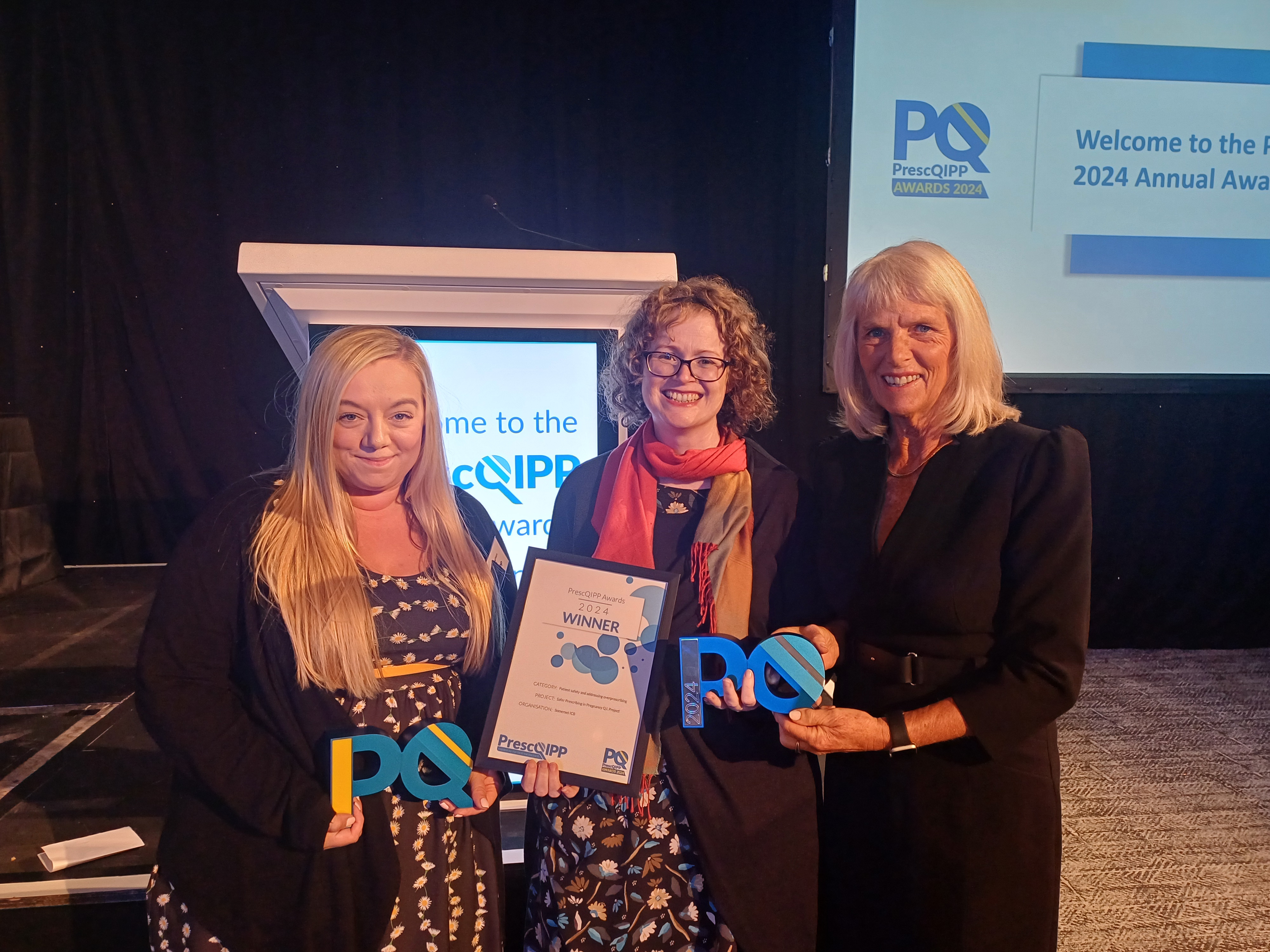Somerset wanted to be proactive and holistic in their approach to improve access for their community to safe and effectively prescribe while pregnant and lactating.
Prioritisation of this cohort of people has not been high, with many being told to either go without treatment, have less-effective treatments, or stop breastfeeding before families are ready.
Everyone is affected by this, not just women or birthing people, everyone born could be exposed to medications in utero, all babies need to be fed and have a well parent.
Nationally first feeds with breastmilk are at around 71%, with Somerset coming in at around 84%, with ~5000 pregnancies each year in Somerset over 10,000 people each year need to be supported to:
Focusing on our safer prescribing in pregnancy workstream, we incentivised safer practice, better conversations and review of patients who were found to be on a non-exhaustive SMART list of medication including valproate, but not coded as being on effective contraception, hysterectomised or post-menopausal. Alongside this incentivised work, our formulary was built with robust links, information and resources to enable clinicians across Somerset to access appropriate evidence-based information, which is often in many places, and can be hard to find if it's not a daily activity.
Somerset has seen a 45% reduction in patients taking these medications without contraception, or appropriate counselling and support. While direct savings can be immediately considered, the total savings aren't fully realised for years to come due to the complexity considering the prevention of harm to future babies born to parents taking medication, keeping them well, and facilitating those families to breastfeed to their own personal goals. If considering the cost saving of only increasing breastfeeding rates, UNICEF concludes the potential contribution of increasing breastfeeding rates in the UK, could result in an incremental benefit of more than £31 million, over the lifetime of each annual cohort of first-time mothers.
